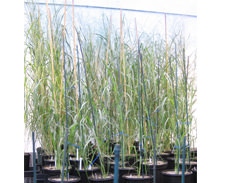July 26, 2016

 Metabolix, Inc. (Woburn, Mass.) has announced that it is implementing a strategic restructuring under which Yield10 Bioscience will become its core business. Consistent with its new strategy, the Company plans to rebrand itself as Yield10 Bioscience in the coming months.
Metabolix, Inc. (Woburn, Mass.) has announced that it is implementing a strategic restructuring under which Yield10 Bioscience will become its core business. Consistent with its new strategy, the Company plans to rebrand itself as Yield10 Bioscience in the coming months.
As part of the restructuring, Metabolix will eliminate approximately 45 positions in its biopolymer operations and corporate organization, and will pursue the sale of its biopolymers business assets. The immediate reduction in personnel represents approximately 50% of the Company's current workforce. The company will continue operations with a staff of approximately 20 people, comprised of the Yield10 crop science team together with a small group of administrative personnel.
"This is a dramatic restructuring and an unfortunate but necessary step to bring the Company forward with a new strategy based on what we believe are the most exciting and promising technologies in our portfolio,” said Joseph Shaulson, president and CEO of Metabolix.
"With this realignment and focus around Yield10 and its exciting crop science technologies, we are starting a new chapter for the Company which we hope will create significant value as we work to develop and commercialize innovative approaches to step-change yield improvements for important food and feed crops like canola, soybean and corn.”
Earlier this year in May, Metabolix had already let it be known that it was exploring strategic alternatives for its specialty biopolymers business and for its Yield10 crop science program. The reasons given were outside strategic interest in its biopolymers business, and a challenging financing environment.
In response to that announcement, Cellulac plc, a UK-based industrial biochemicals investment technology company made a formal proposal via the CEO to merge both companies. Under the proposal, said Cellulac CEO Gerard Brandon, Cellulac would contribute industrial scale production assets with biochemical and biopolymer capacity, independently valued at up to $40m. In addition, terms for a manufacturers licensing agreement of the combined Metabolix and Cellulac biopolymer assets with access to debt and equity funding from Cellulac assets and shareholders for a commercially focused growth strategy of the enlarged entity.
Yet, according to Brandon, the Board of Directors of Metabolix decided the $40m merger offer was not important enough to inform shareholders - even though Metabolix, according to its most recent statement is holding its biopolymer assets for sale and may sell or license all or portions of its biopolymer inventory, equipment and intellectual property in connection with its ongoing financing efforts and the implementation of its new strategy.
Not one to mince words, Brandon has now subsequently written a widely publicized, harsh condemnation of the refusal, pointing out to Metabolix’s shareholders, that “A merger with Cellulac, based on the biopolymer intellectual property and associated institutional knowledge, would reduce Metabolix development overhead to a more manageable level where manufacturing license fees and future royalties would transform Metabolix, for the first time in 24 years, into a profitable part of an enlarged bio-based company. Synergies would contribute shared management and development costs across a larger corporate group, multiple revenue streams comprising of production equipment installations, recurring revenue from biochemical production, manufacturing product licensing agreements, process licensing with biopolymer offtake agreements worth $38m already in place.”
“In my opinion, by declining the offer from Cellulac, current management and Metabolix Board demonstrate a complete lack of business acumen or commercial vision. Displaying utter contempt for shareholder value they are adopting a strategy that requires investment of $35m over the next 7 years leading to further destruction in equity value with no visibility of revenue, other than government grants.”
“This is likely to be the last opportunity to transform Metabolix…..into part of a high growth enlarged group with multiple revenue streams for biochemicals and biopolymers, which would be cash generative this year,” he ended.
It is anyone’s guess how this will end, but one thing is certain: the last word has not been said on the matter.
About the Author(s)
You May Also Like


